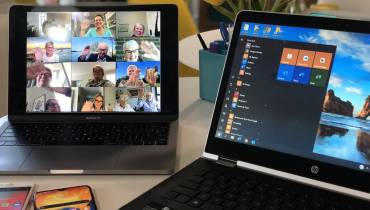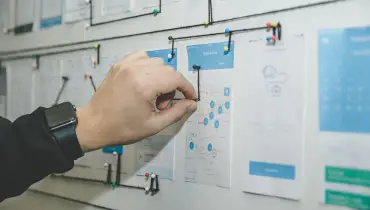How Smartphones Are Changing Our Brains

“Dear phone, I can’t put you Down!” This is probably what your mind (consciously or unconsciously) thinks, right?
Addiction has emerged as a word to define people’s acute attachment to their smartphones. And, in 2023, we are still not near to reach the full capacity of the capabilities of smartphones and so the likelihood for even more addiction and dependence is real.
Think about it. If you are driving, where are you going? No, don’t use the maps on your phone now. Ask yourself what can you do without your phone.
Slow claps to all who are living a paralyzed life because your brain has been highjacked by your phone and your life has been rendered dependent on the mobile gadget.
Do you remember the mobile phone was INVENTED by BRAINS!
Would you be offended if I said you are losing your brains by being too attached to your phone?
Well, I didn’t say so. There was a time when people used and depended on their own brains to create things and solve problems. However, today the world is busy recreating.
Everywhere around us is a recreation that was created once by the human mind. From technology to music and art, everything today is pretty much recreated.
Today, updated versions of smartphones and other tech gadgets and software with the same features are repackaged and presented as shining brand-new launches of the day.
UPDATED is not CREATED. An old melody may be remixed and turned into a new pop song now, but understand that OLD IS GOLD and a remix is not really new in the most authentic sense.
Hello, creation? Are you there? Can you hear me?
Are you using your brain for creation, or are you depending on tech and other artificial solutions to create for you? Hello, creation? Please come back.
Exactly, the creation is inside you and not the gadget you are attracted to.
Nowadays, the smartphone and all that it holds has become smarter than people. Why is it so? Well, it’s people (maybe you included) who say things like that, right?
So, if that is true and the smartphone is smarter than people, is it okay if your smartphone works and gets a salary? Is it okay if your better half marries your smartphone? Is it okay if they start having a family of their own series? It’s not happening, right!
Then, why are we people so much into this stigma of using a smartphone and so dependent on the so-called smart gadgets?
Smartphones may be making you dumb
In the early days when smartphones had not yet been invented or acknowledged, the primary source of communication was newspapers and news channels. No, I am not asking you to live in that early era. All I need to say is, people those days were demonstrably less stressed, happier, and perhaps more satisfied than we are today.
People enjoyed spending more time outdoors with family and friends.
Smartphones were invented to make communication better, people more able to access technology and understand the situations around the world and how the world clicks. However, smartphones have inadvertently emerged as major causes of poor mental health and ‘social stress’ in our world today.
While we are doing everything we can to cling to the pros of smartphones, putting your phone down may ultimately help you to live longer and happier.

Disadvantages of being on your phone so much
We used to run gadgets, but nowadays it seems gadgets are running us. Gadgets tell us when to wake up, what to wear, what to eat, where to go, and even how our days should be planned and organized.
“Hey, Siri,” “Ok, Google,” “Dear Alexa,” and whatnot represent how we are now using smartphones. We are asking a phone that is made by people and is a product of our brains every single, little thing today.
Wouldn’t it be better to be independent thinkers and look into the answers to our queries the good old-fashioned way on our own selves, rather than being too dependent on a phone?
Of course, it’s good that we have an enormous amount of information at our fingertips, but are frequent visits to the library to do research really that bad? Doesn’t verbal communication face-face have value too, rather than always depending on emails and text messages?
The problem with relying too much on our phones is that the amount of stress the mere thought of being away from your phone causes can be very detrimental to our physical and mental health.
We don’t even do simple calculations mentally anymore that help to jog our brains and keep it fit. Instead, simple tasks like these are now also turned over to smartphone apps to do them for us.
Now, our brains collect our observation, thoughts, imaginations, and can effectively perform a host of different tasks. Because the brain is connected to every other system in our bodies (and senses too), it is very important to keep it fit and health for overall good health and vitality.
However, studies show that excessive or “maladaptive” use of our phones can affect our metal faculties and may be leading to greater incidences of depression and anxiety.
The information age and gadget revolution may be changing us into indexers of data rather than bearers of knowledge.
Smartphones impacting how our brains work
Below are a few things that smartphones come with that are affecting us and the adverse effects those things are having on our brains and quality of life.
I. Social Media
Social Media has contributed to growing hatred, violence, misleading information (fake news), and many more vices online. Oftentimes on social media, people use the right to speak in the wrong way. This is hurting people more than it is helping.
What’s the first thing you do off the bed? You probably check your phone and apps, right? Well, this is very common habit that is hard to shake off nowadays, but it’s important to put limits on our use of digital media. A social media detox is also recommended.
We live a filtered life on social media where our selfies are becoming more beautiful and animated. What about the darkness in our lives? Does anyone have a life-Filter?
“Taking a digital detox is one of the most helpful ways to manage stress related to technology use,” says Lynn Bufka, PhD, APA’s associate executive director for practice research and policy. “Constant checkers could benefit from limiting their use of technology and presence on social media. Adults, and particularly parents, should strive to set a good example for children when it comes to a healthy relationship with technology.”
II. Digital intolerance and conspiracy theories
People are increasing the gap in religious differences and promoting racial and even political intolerance all over the world by spreading bad information and rumors about others online using their handheld, internet-connected smartphones.
Men are happy to put other men down. Viral conspiracy videos of people attacking community X and favoring community Y are common and rising. Where does this come from? Simple, you read or see something shared on your phone and react the very next second. Just wait, at least wait for a while, and think if it’s wrong and what’s right.
Judging everyone or certain groups of people based on a post or push notification being share on your smartphone is not the solution or the right things to do. There is strength in diversity and hate created through the misuse of smartphones to sway people’s minds negatively and affect their brains to cultivate hatred is wrong.
Smartphones have made it very easy to engage in such bad practices anywhere and anytime, affecting people's psyche and lives.
III. Leading is the new Misleading
Today, everyone seems to want to be an influence. Everyone wants to lead and have masses of people following and raving about them on digital platforms. People are racing to the top and spreading misinformation and fake news just to get there, rather than standing by the truth. And this has been made possible, easier and more convenient to do via mobile phones. Who knew smartphones would come in handy to spread fake news and misinformation?
When it comes to information online, not even legitimate news from credible sources is spared from misinterpretation and misuse these days. All that seems to spreads the most online these days it seems is rumors and skewed stories and imaginations. Thus, everything has become much more superficial and less trustworthy and unreal. The ratio of fake influencers is increasing ahead of real-life experiences. The risk-taking capacity has been eliminated from the brains of the people, and now they totally believe in the one thing that is their phone.
It would help if you did not blindly trust anyone. But many people are fully blinded, trusting what’s shared on our phones without considering the authenticity of what’s shared. We do not realize the loss everyone will face. The concept of minding for your brothers and sister is gone. Blame games and casteism rocks and trends like anything.
Today, rather than celebrating the success story of a struggler, a smart scam done by a pervert is highlighted more. And the sad part of that is that people discuss and look into the strategy behind a bad crime more than appreciating the hard work of a good effort.
This is all about the brain! Use your brain to bifurcate or divide the good and bad.
IV. Easier access to adult content
The intensity of the word "porn" itself does not allow most people to discuss the topic openly or at all. But it is necessary to discuss it. Everyone reading this has to understand the fact that PORN does affect the brain. It may be bread to some of us, but it is poison for many.
Unfortunately, access to pornography has become easier than ever via the miniature computers (smartphones) in our palms - even to underage children. Children who are drawn in to porn and nudity on their smartphones without having adequate sex education are losing an understanding of the facts of real life. Sex is usually not what's portrayed in those x-rated films.
Moreover, porn addiction has a concerning connection with the rising rape culture happening all over the world, especially where "aggressive pornography" is concerned. Porn videos and sites are known to deteriorate the level of thinking and personal control each time a person looks at them. And this is scientifically proven.
Keep porn away from children and also away from adults as much as possible because it impacts our brains. You might not be one to tell others what to do, but you certainly can control your own behavior and protect your family from the adverse effects pornography has on the mind.
One way to do that is by limiting your own smartphone use and also monitoring your children’s phones for a safer and better future.






















